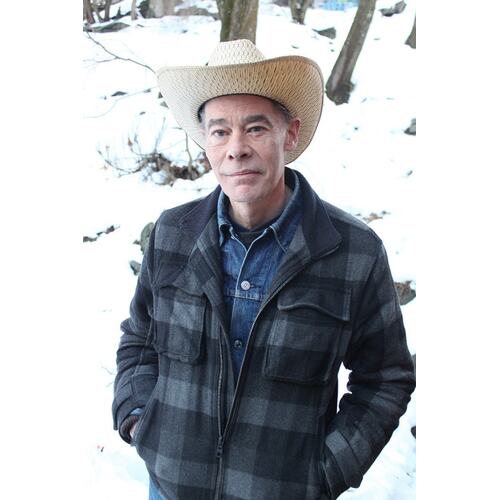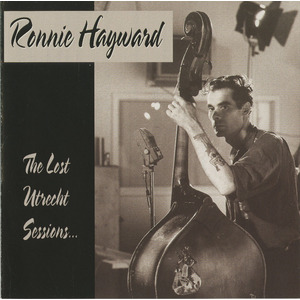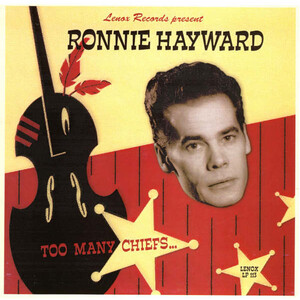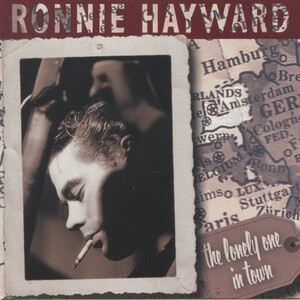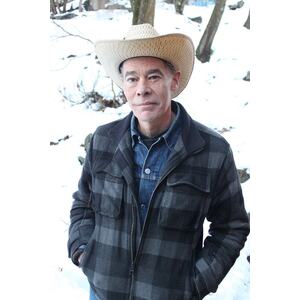Hayward, Ronnie
Websites:
No
Origin:
Castelgar, British Columbia - Calgary, Alberta - Vancouver - Nelson, British Columbia, 🇨🇦
Biography:
Ronnie Hayward is a Canadian rockabilly and roots music artist, upright bassist, vocalist, and songwriter whose raw sound, uncompromising spirit, and prolific output have earned him cult status in underground music circles worldwide. A master of stripped-down, honest Americana, Hayward draws from the deep wells of rockabilly, country, blues, and early jazz, creating timeless music for modern misfits.
Born in Castlegar, British Columbia, Hayward grew up the youngest in a large family. His older parents introduced him to the sounds of Hank Williams, Jimmie Rodgers, and early rhythm and blues, igniting a lifelong passion for music. At age 9, he picked up a guitar and began performing country classics. But it wasn’t until his early 20s, after acquiring an upright bass, that he found his true calling. “I thought, ‘I’m not going to do anything else,’” he later said. “And I haven’t since.”
After stints in Calgary and Vancouver in the 1980s, Hayward immersed himself in the local roots and rockabilly scenes. He played with The Tailgators, Shotgun Shack, Five Star Hillbillies, and joined The Nervous Fellas in 1990, followed by Bughouse Five (1991–1997). In those years, Hayward also led his own band—The Ronnie Hayward Trio—featuring guitarist Pete Turland and rhythm guitarist Darwin Fisher. Their 1997 vinyl-only LP Gotta Git It On, released on Britain’s Fury label, established them internationally. That same year, they released over 30 tracks between Gotta Git It On, Somewhere Out There, and Move Around—a feat few independent acts can match.
Hayward's lyrics are steeped in personal experience. “Oddly enough, they all seem to be relationship-based, either good or bad,” he told reporters. “Every song and poem I’ve written is based on something that actually took place.” Titles like “Cooin’ the Wrong Pigeon” and “If You Do, I’m Riding Too” show his sly humor and heartbreak in equal measure.
Frustrated with the limited support for rockabilly in Canada—“Canada isn’t very open-minded to the past”—Hayward increasingly looked to Europe, where the genre enjoys steady airplay, devoted audiences, and frequent festivals. After a successful 1997 appearance at the Hemsby Festival in England, Hayward and his trio toured across the UK, Netherlands, and Germany. Many of his later albums were recorded in Europe, including the widely praised The Lost Utrecht Sessions (2000), which was captured live in the Netherlands with a spontaneous group of Dutch players. The record is a testament to Hayward’s improvisational spirit, with songs often written on the spot.
In 2005, Hayward surprised fans by releasing a jazz album that topped charts for three months—despite the fact that none of the musicians were trained jazz players. His fearless approach to genre and performance has earned him a reputation as an iconoclastic artist uninterested in trends or commercial compromises.
After more than three decades on the road, Hayward returned to his roots in 2015, settling back in Nelson, British Columbia. “It’s nice to be back here, in the area where I grew up,” he reflected. He continues to write, record, and perform—sometimes solo, sometimes with longtime friend Craig Korth, and often with just a snare, brushes, and upright bass.
Now a member of the Rockabilly Hall of Fame, Ronnie Hayward remains one of Canada’s unsung treasures—a restless artist whose music honors the past while never standing still.
“It’s not pure rockabilly, it’s not pure country, it’s not pure blues—but it’s pure genius.”
— Tex, liner notes to The Lost Utrecht Sessions
-Robert Williston
